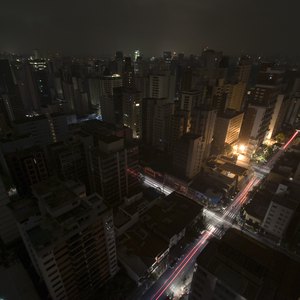
It may seem like people who rent a place to live don't need insurance. After all, if a fire burns down the building, the landlord's insurance will rebuild it. But your possessions are also at risk, and the landlord's policy won't cover them. Renters insurance will. It covers the loss of your belongings from disasters such as lightning, wind and some power outages.
Tips
Renter's insurance covers unexpected home incidences that most likely will not be covered by your apartment's property manager or your landlord. Depending on your renter's insurance policy, your insurance provider may cover damages you experience due to an unexpected power outage.
Asking Questions
It's important to understand the ins and outs of your renters insurance policy. You'll want to know when exactly it will help you if your apartment loses power. Not all outages will be covered. If it's your fault the power went out, your losses are likely not covered. Typically, outages caused by the disasters listed in the policy are covered, but even then, there will likely be limits. Also, you need to find out how to make a claim.
Getting Paid
Renters insurance comes in two types. One covers the actual cash value of the things you've lost. Recognizing that used objects lose value over time, this type deducts depreciation from the worth of your belongings. You could instead go with a policy that pays you the replacement cost of your possessions. You'll spend more for this kind, but it recognizes that replacing a fried laptop will cost more now than it did a couple years ago. Understanding how you'll be compensated before a power outage ruins your stuff will help you plan ahead.
Living Expenses
Renters insurance will pay for hotels, eating out and other expenses associated with being stranded from a disaster. Seeing this additional coverage for living expenses in your policy may have you thinking you could stay in a toasty hotel if an ice storm knocks out your power. That's probably not the case if your home is still livable and you just need extra blankets. Check with your insurance company before checking in at a hotel.
Losing Food
A typical loss when power goes out for an extended period is spoiled food in the fridge. Renters insurance may help you recoup your losses. The cost of eating out may be covered while a power outage prevents you from cooking. Later, as you throw out your ruined food, make a list of what you lost. Keep your receipts to show how much your grocer will charge to replace it all.
Being Proactive
You may have to show you tried to protect your belongings for renters insurance to help you. For example, a lighting strike can damage electronics. Equipment is often damaged when the power returns, with the sudden surge wreaking havoc on valuable items such as computers and televisions. Owners are expected to unplug such things when the power goes off and the policy may not cover losses if you don't.
References
- Insurance Information Institute: Majority of Renters Are Uninsured ...
- Insurance Information Institute. "Your Renters Insurance Guide." Accessed May 11, 2020.
- State Farm. "How Can Renters Insurance Protect Both Landlord and Renter?" Accessed May 11, 2020.
- Travelers. "Renters Liability Coverage." Accessed May 11, 2020.
- USA.gov. "Property Insurance." Accessed May 12, 2020.
- National Association of Insurance Commissioners. "NAIC Releases Report on Homeowners Insurance." Accessed May 12, 2020.
- Insurance Information Institute. "Renters Insurance." Accessed May 12, 2020.
Writer Bio
Sophie Johnson is a freelance writer and editor of both print and film media. A freelancer for more than 20 years, Johnson has had the opportunity to cover topics ranging from construction to music to celebrity interviews.

